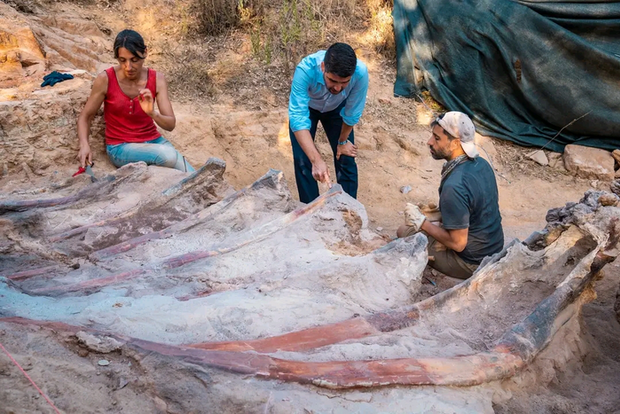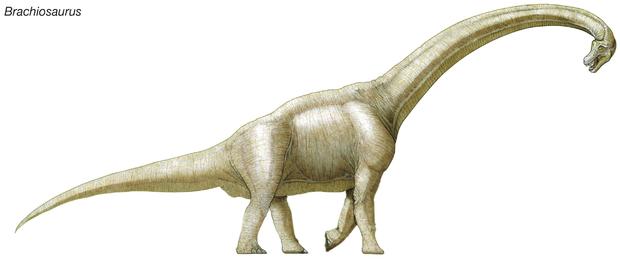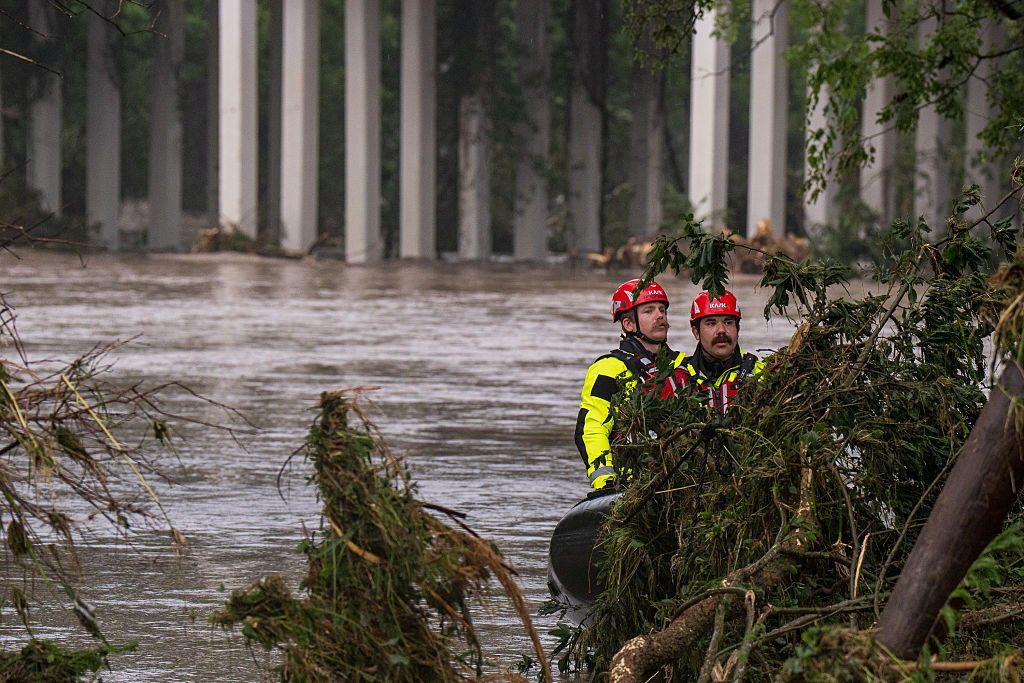Skeleton of an 82-foot-long dinosaur was found in a man's backyard in Portugal. It could be the largest ever found in Europe.
The skeleton of a massive dinosaur was discovered in a man's backyard in Pombal, Portugal, and it could be the largest ever found in Europe, according to a news release published Wednesday.
The property owner noticed fragments of fossilized bones in his yard when carrying out construction in 2017, and contacted a research team, which launched an initial excavation campaign the same year, the news release said.
Earlier this month, paleontologists from Spain and Portugal worked at the site for over a week and they believe they have unearthed remains of the largest sauropod dinosaur to ever be found on the continent, according to the release. Sauropods are plant-eating, four-legged dinosaurs with long necks and tails. This dinosaur measured about 39 feet tall and 82 feet long.
"It is not usual to find all the ribs of an animal like this, let alone in this position, maintaining their original anatomical position. This mode of preservation is relatively uncommon in the fossil record of dinosaurs, in particular sauropods, from the Portuguese Upper Jurassic," Dr. Elisabete Malafaia, a postdoctoral researcher at the University of Lisbon, said in a statement.
"This kind of preservation is relatively rare for large-sized dinosaurs from the Portuguese fossil record and indicates particular and unusual environmental and taphonomic features," she told CBS News on Thursday.
The most important elements of the skeleton have been collected from the site, which includes the vertebrae and ribs of a possible brachiosaurid sauropod, or brachiosaurus, the news release said. The dinosaur species roamed the Earth 160 to 100 million years ago.
Malafaia told CBS News the ribs measured about three meters – or nearly 10 feet in length, which she said are "the largest ribs of a sauropod that are currently known in Europe and one of the largest that was described worldwide."
Due to the dinosaur's preservation characteristics, researchers believe other parts of its skeleton will also be found nearby. Malafaia said they plan to return next year.
The region of Pombal has been fruitful in terms of fossil sites, she said, which indicates the area has "abundant fossil record of dinosaurs and other vertebrates."
"This fossil record has added important data to better understand the continental faunas that inhabited the Iberian Peninsula during the Late Jurassic," she said.





